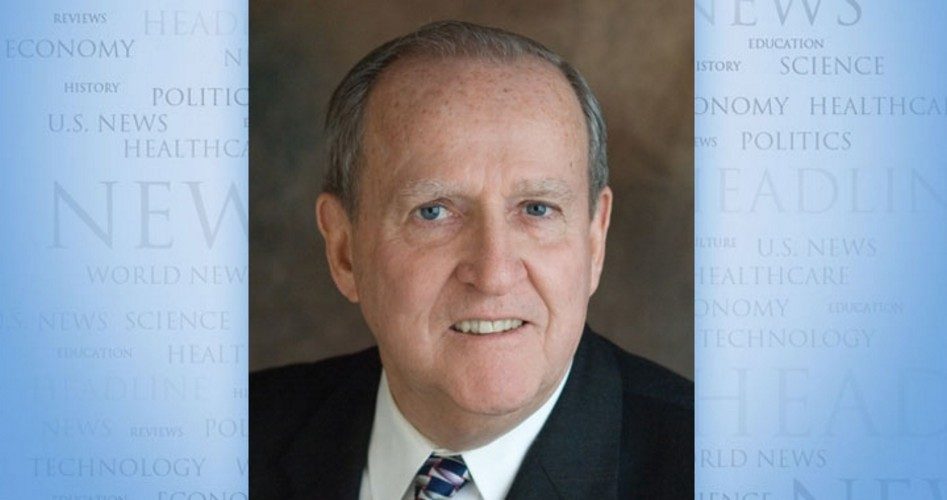
John Adams, our nation’s second president, famously stated the need for something beyond the Constitution to preserve the American dream. He insisted: “Our Constitution was made only for a moral and religious people. It is wholly inadequate to the government of any other.” Approximately one and a half centuries later, Founder Robert Welch of The John Birch Society warned, “War always results in more government and moral decline.” Both stressed the importance of morality and, as history shows, they were hardly alone in doing so.
Which brings us to consider a man who spent his adult life undermining the moral principles surrounding the relationships between men and women. Hugh Hefner passed away on September 27th at age 91 after spending decades creating — and profiting handsomely from — a sexual revolution both in the U.S. and abroad. The advertised foe of what he and allies termed American priggishness and puritanism, Hefner persuaded millions to choose his “new moral maturity.” Boasting of his own libertine lifestyle, he estimated that he had slept with more than 1,000 women.
Hefner’s impact on the morals of Americans began in 1953 with the first issue of Playboy magazine featuring a semi-nude photo of actress Marilyn Monroe. While pornography of various types was available and was already negatively affecting some, it had a deserved stigma limiting its harm. Men might have submitted to its grasp but most knew that immersing themselves in pornography was wrong. Playboy accomplished lifting porn to a new status that made it popular and supposedly harmless, even “sophisticated.” By 1973, Playboy’s monthly circulation soared past the seven million mark. All across the land — and into other countries — readers wallowed in its photos of women in various stages of undress. It is hardly a stretch to note, as some have proposed, that the Hefner effect helped to increase family breakups and divorce.
The standard issue of Playboy included articles by and interviews of leftist crusaders, prominent actors, politicians, and even literary notables. Hefner delighted in having them lend their names to his endeavors. He defended those who claimed their choice of the magazine stemmed only from a preference for the articles. William F. Buckley, Jr. became one of Hefner’s favorites – both as a writer of articles and the subject of interviews. He once stated in his customary use of macabre witticisms: “I write for Playboy because it is the fastest way to communicate with my seventeen-year-old son.”
Hefner used some of millions he accumulated to fund such leftist groups as the American Civil Liberties Union and the Urban League. His enshrinement of pleasure as an end in itself led him to finance the Organization for the Repeal of Marijuana Laws. He sent large donations to groups promoting abortion. Even though he had a disdain for the institution of marriage, many witnessed him marry thrice and divorce twice.
Not content with the financial success he gained with the magazine, he started Playboy Clubs in the 1960s. This initial foray into the restaurant business saw the debut of his “bunny waitresses” at the Chicago location and, before long, there were 20 other clubs, mostly in America with a few overseas. His hedonistic goals saw him seeking followers whose interests spanned the intellectual, entertainment, and erotic worlds.
In the late 1960s after Hefner’s influence and Playboy’s popularity had become dominant for millions, a representative of the magazine offered Robert Welch the then-princely sum of $5,000 for an interview. Without hesitation, Welch said he would not lend his name to a publication he abhorred. On the other hand, Birch Society nemesis William Buckley, a frequent contributor to Hefner’s hedonistic publication, enjoyed being paid handsomely. But the liberal world’s “favorite conservative” was himself damaging our nation’s moral fiber. If Buckley favored Playboy, said many, then Playboy was acceptable.
Frequently asked what he saw as the greatest problem facing America, the Birch Society’s Welch, who passed away in 1985, was expected to point to the United Nations, the Federal Reserve, the extremes of the Supreme Court, or rising national indebtedness. But his response never changed. “Moral decline is the greatest enemy we face,” he would insist.
In 1970, Mr. Welch wrote an essay to JBS members challenging them to stand tall in support of well-established moral codes and to set worthy examples in their personal lives. The Society has published this into an inexpensive booklet called “The John Birch Resolutions.”
Hugh Hefner’s contribution toward the destruction of the country has helped eat away at the nation’s morality. Let us each set a worthy example of morality to help stem and reverse the tide of immorality. Order and read “The John Birch Resolutions.” Be sure to order extra copies for others.
John F. McManus is president emeritus of The John Birch Society. This column appeared originally at the insideJBS blog and is reprinted here with permission.


